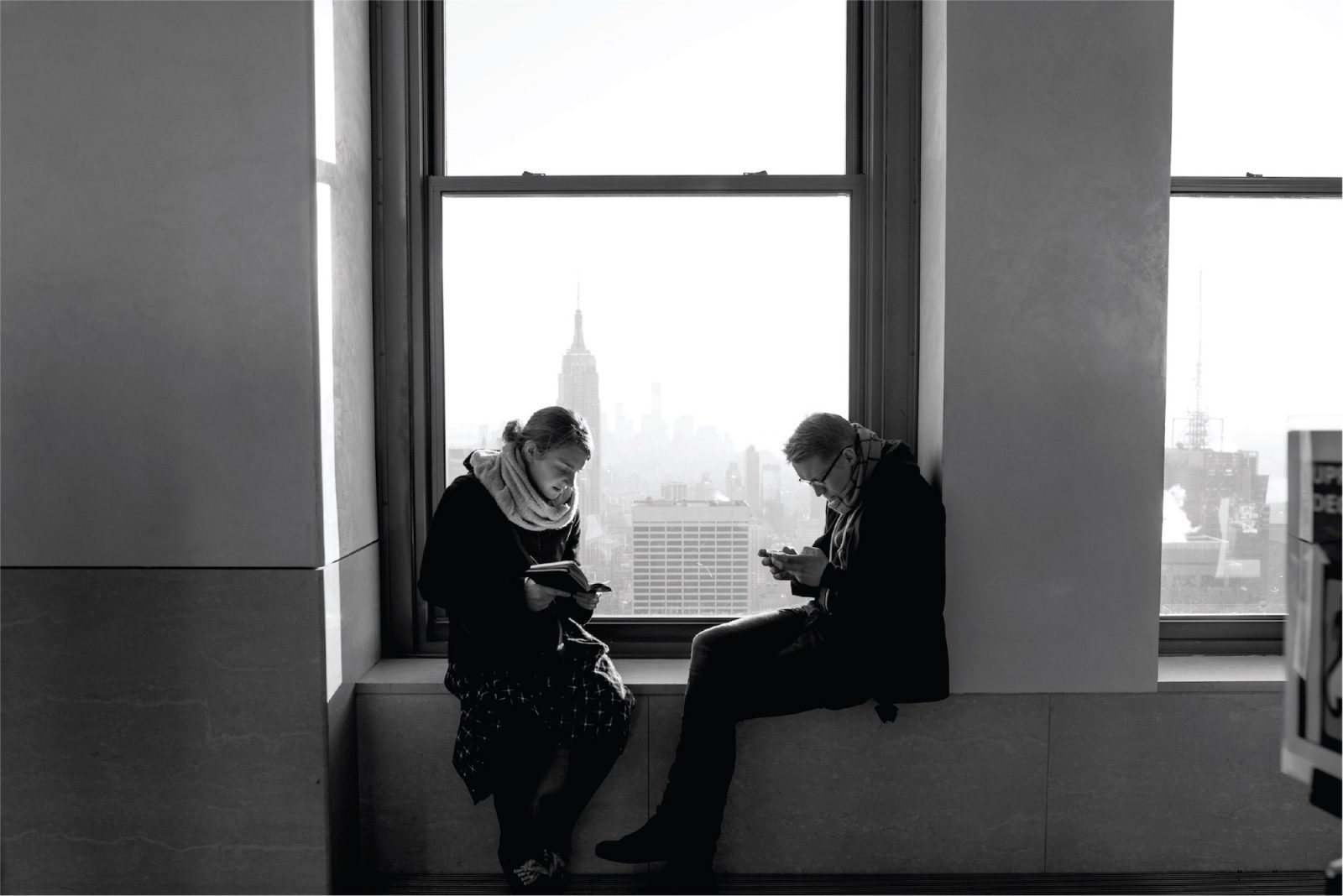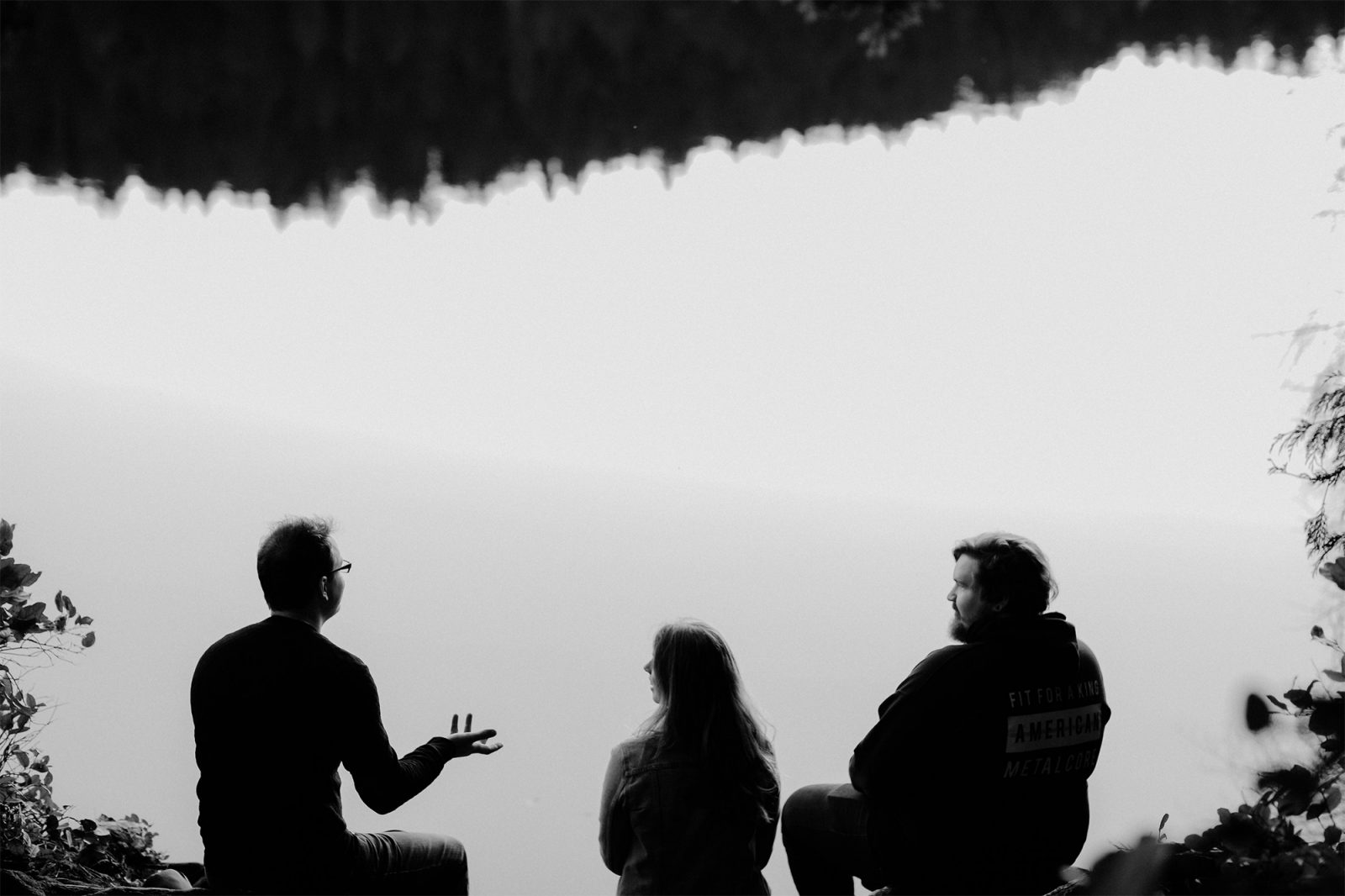Q&A: The School of Life on Upgrading You

Figuring out how to lead a more fulfilling life isn’t an easy task—and so often this very idea is undermined by a world concerned with doing more, being more, posting more and having more. This season at MPavilion, we’ve teamed up with the global phenomenon that is The School of Life for two inclusive and welcoming workshops that are all about making life a little more meaningful.
Founded by Alain de Botton in 2008, The School of Life is an organisation with a mission to help people with relationships, work, purpose and inner wellbeing, and has branches all around the world. At The School of Life presents ‘A Night of Better Conversation’ on Wednesday 11 December, 6.15–7.15pm, the School’s Melbourne chapter will help you develop the tools to better connect with those around you in an age of loneliness; and at The School of Life presents ‘Storytelling as Therapy’ on Wednesday 11 March, 6.15–7.15pm, it will teach you how you can better understand and tell your life story.
We caught up with Eleanor Gammell, managing director of The School of Life Australia, to find out what to expect.
MPavilion: The School of Life has become a global success story in large part because people broadly crave spaces in which to engage with ideas about work, relationships and how to live more fulfilling lives. Why do you think people are so in need of these discussions in 2019?
Eleanor Gammell: Because we don’t get taught these things at school! We live in an age where seeking personal fulfilment is an entirely understood and respected component of what we’re all striving for in life, however we don’t include it in the school curriculum. We expect people to find emotional education outside of structured learning—we’re supposed to stumble upon it as we go which makes for a seriously rocky ride.
As a society we have a huge collective regard for education, but we’re strangely very specific about what it should be for. We agree that numbers and words are important, also science, history, business and some aspects of culture—but it remains pretty strange to imagine that it might be possible to educate ourselves emotionally—that we might need to learn how to avoid sulking, interpret our grief or choose a partner.

MPavilion: In the School’s values document you reference psychotherapy as core to your approach to relationships and to work. Obviously psychotherapy is another avenue people can go down to gain a better understanding of their lives—is the School a way to open that up to larger numbers of people in a contemporary context?
Eleanor: Absolutely. Across all of the disciplines we use in our content, whether it be philosophy, psychotherapy, art history, social science, film etc, we try to mine the wisdom from different ages of human history to find ideas which might help us live our lives well today. The very real struggles of work, relationships, meaning and self-awareness are not new—so we need to look back at different schools of thought through time to learn the tools humans have developed to approach them.
I like to think of The School of Life as a gateway drug to a deeper inner journey and for plenty of people that may end up including psychotherapy. There are plenty of therapeutic options out there for people and it’s a very personal choice—we certainly don’t steer them to one or the other. If we have been able to provide an accessible and welcoming platform to share different ways of thinking more deeply about our lives and asking bigger questions of ourselves, then I think we’re on the right track.
MPavilion: You’ve held so many discussions about how to get more out of life. What are the top three things you’ve learned through these presentations and conversations? Please help!
Eleanor: Enjoy simple pleasures. Don’t focus on work as your success story; it’s all about human connection in the end. Stay curious and humble.
MPavilion: We’re so excited to collaborate with The School of Life for two must-attend workshops this season. The first is about how to meaningfully connect with other people in an age of loneliness—talk about a big issue! Can you give us an insight into what to expect in the session?
Eleanor: Consciously or unconsciously, we tend to be very aware of each other’s differences. We make judgements on first impressions, hold biases based on someone else’s profession, and very often we struggle to deepen the level of conversation with someone we have just met, or indeed with someone we have known all our lives. The evening will give us some techniques in how to practice deep listening, the power of sharing our own vulnerabilities and how to step past small talk to rediscover the art of meaningful conversation and human connection.
MPavilion: Your Storytelling as Therapy workshop with Dumbo Feather at MPavilion asks us to discover and tell our own life’s stories through reflective practices. Why is this important?
Eleanor: Humans are storytellers. We create meaning and identity through the stories we tell about ourselves, about others, about our planet. The workshop will look at the power of the way we tell and understand stories in finding ownership of the present, learning from the past and becoming in the future. Ultimately, life is made up of the stories we tell.
Join us for The School of Life presents ‘A Night of Better Conversation’ on Wednesday 11 December, 6.15–7.15pm; and The School of Life presents ‘Storytelling as Therapy’ on Wednesday 11 March, 6.15–7.15pm.
MPavilion 2019 is open in the Queen Victoria Gardens from 14 November 2019 to 22 March 2020. MPavilion is an initiative of the Naomi Milgrom Foundation in partnership with City of Melbourne, Victorian Government through Creative Victoria and Development Victoria, ANZ, and RACV.